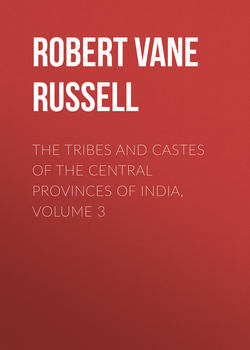Читать книгу The Tribes and Castes of the Central Provinces of India, Volume 3 - Robert Vane Russell - Страница 53
Gond
(e) Funeral Rites
35. Memorial stones to the dead
ОглавлениеIn Bastar, at some convenient time after the death, a stone is set up in memory of any dead person who was an adult, usually by the roadside. Families who have emigrated to other localities often return to their parent village for setting up these stones. The stones vary according to the importance of the deceased, those for prominent men being sometimes as much as eight feet high. In some places a small stone seat is made in front, and this is meant for the deceased to sit on, the memorial stone being his house. After being placed in position the stone is anointed with turmeric, curds, ghī and oil, and a cow or pig is offered to it. Afterwards irregular offerings of liquor and tobacco are made to the dead man at the stone by the family and also by strangers passing by. They believe that the memorial stones sometimes grow and increase in size, and if this happens they think that the dead man’s family will become extinct, as the stone and the family cannot continue to grow together. Elsewhere a long heap of stones is made in honour of a dead man, sometimes with a flat-topped post at the head. This is especially done for men who have died from epidemic disease or by an accident, and passers-by fling stones on the heap with the idea that the dead man’s spirit will thereby be kept down and prevented from returning to trouble the living. In connection with the custom of making a seat at the deceased’s tomb for his spirit to sit upon, Mr. A. K. Smith writes: “It is well known to every Gond that ghosts and devils cannot squat on the bare ground like human beings, and must be given something to sit on. The white man who requires a chair to sit on is thus plainly akin to the world of demons, so one of the few effective ways of getting Gonds to open their mouths and talk freely is to sit on the ground among them. Outside every Gond house is placed a rough bench for the accommodation of any devils that may be flitting about at night, so that they may not come indoors and trouble the inmates.”
